Children Dismantling Racism
At what age can a child learn to reject racism?
At separate Vacation Bible Schools in summer 2022, at St. Thomas Episcopal Church in Columbus and St. Martin in the Fields Episcopal Church in Atlanta, kids from pre-k to fifth grade had fun learning the value of individual differences and the importance of love and compassion for everyone.
Through Scripture lessons, stories, songs, crafts and serving others, the children learned ways to promote racial understanding, healing and reconciliation. Based on the Dismantling Racism curriculum developed and offered through The Absalom Jones Episcopal Center for Racial Healing in Atlanta, the children’s curriculum has fewer big words and simpler, powerful concepts.
“Dismantling racism is a good title for adults, or even for teenagers to understand, but I don’t know how much that real technical term speaks to children,” said Erin Redden, Director of Christian formation at St. Thomas. “We called it ‘Living into God’s Dream’ because we’re always learning and practicing the biggest thing — seeing God in everybody’s face. We’re all made in God’s image.”
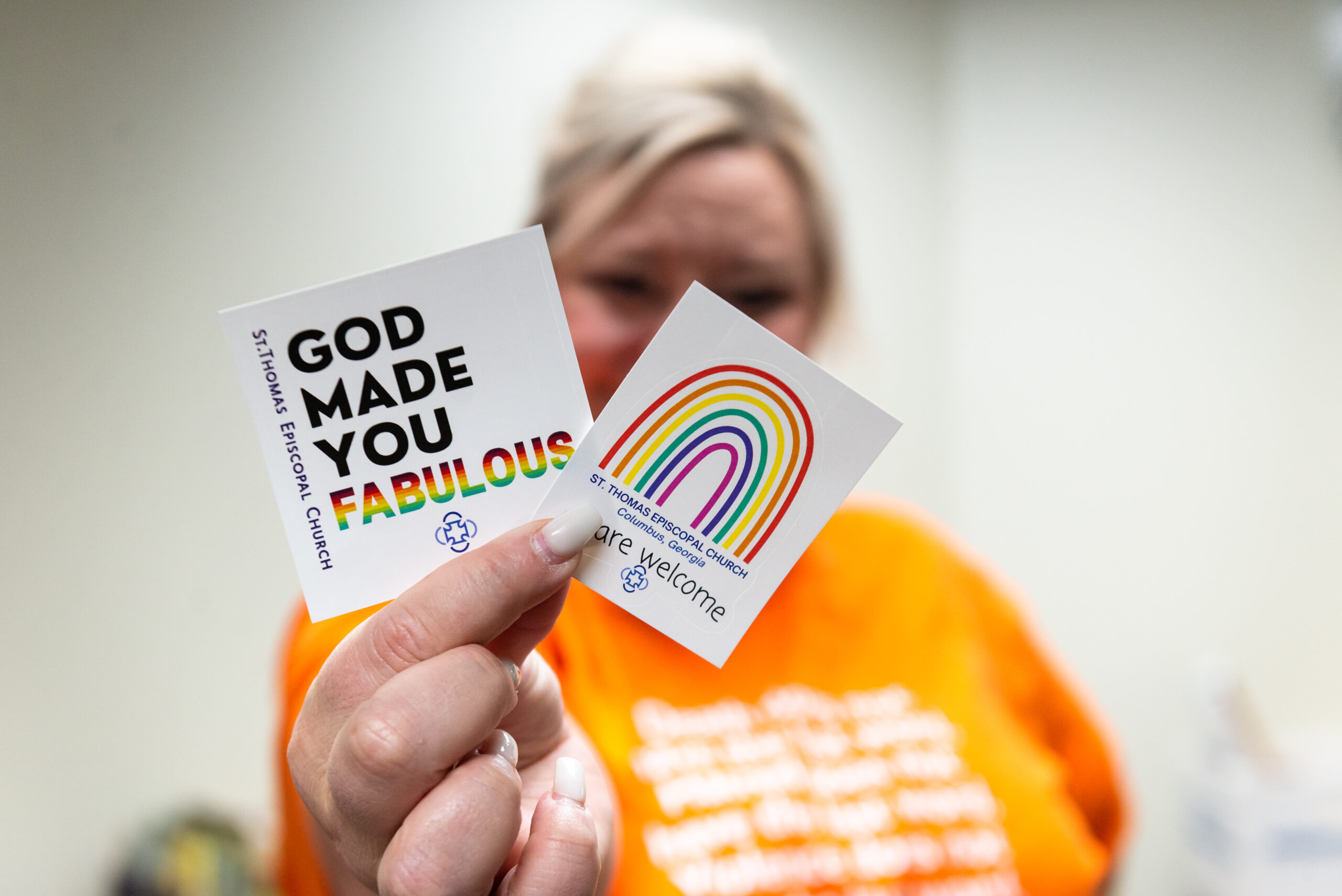
Mary Grace Brown, a VBS participant at St. Martin in the Fields, summed up what she learned: “It doesn’t matter who you are. It doesn’t matter the color of your skin. It matters that God loves you.”
A Hand with Five Fingers
Several writers created the new curriculum, including Sally Ulrey, who serves on the Bishop’s staff and has 19 years of experience working in parish youth ministry and Christian education. She also co-authored the Center’s Dismantling Racism Youth Curriculum. She explained that the children’s curriculum has the following five parts.
1. I am Beloved.
“Each of us is made in God’s image, and we show something about God, and until we have all of us, we can’t see the whole picture of who God really is. So we all bring something to the picture of the beauty of God.”
2. I am Brave.
“That’s about looking into our history, and that we can be brave enough to face hard things and have tough conversations.”
3. I am Compassionate.
“We have to look at each other through God’s eyes of compassion, and really hear one another’s story and experiences. Everybody has a different perspective.”
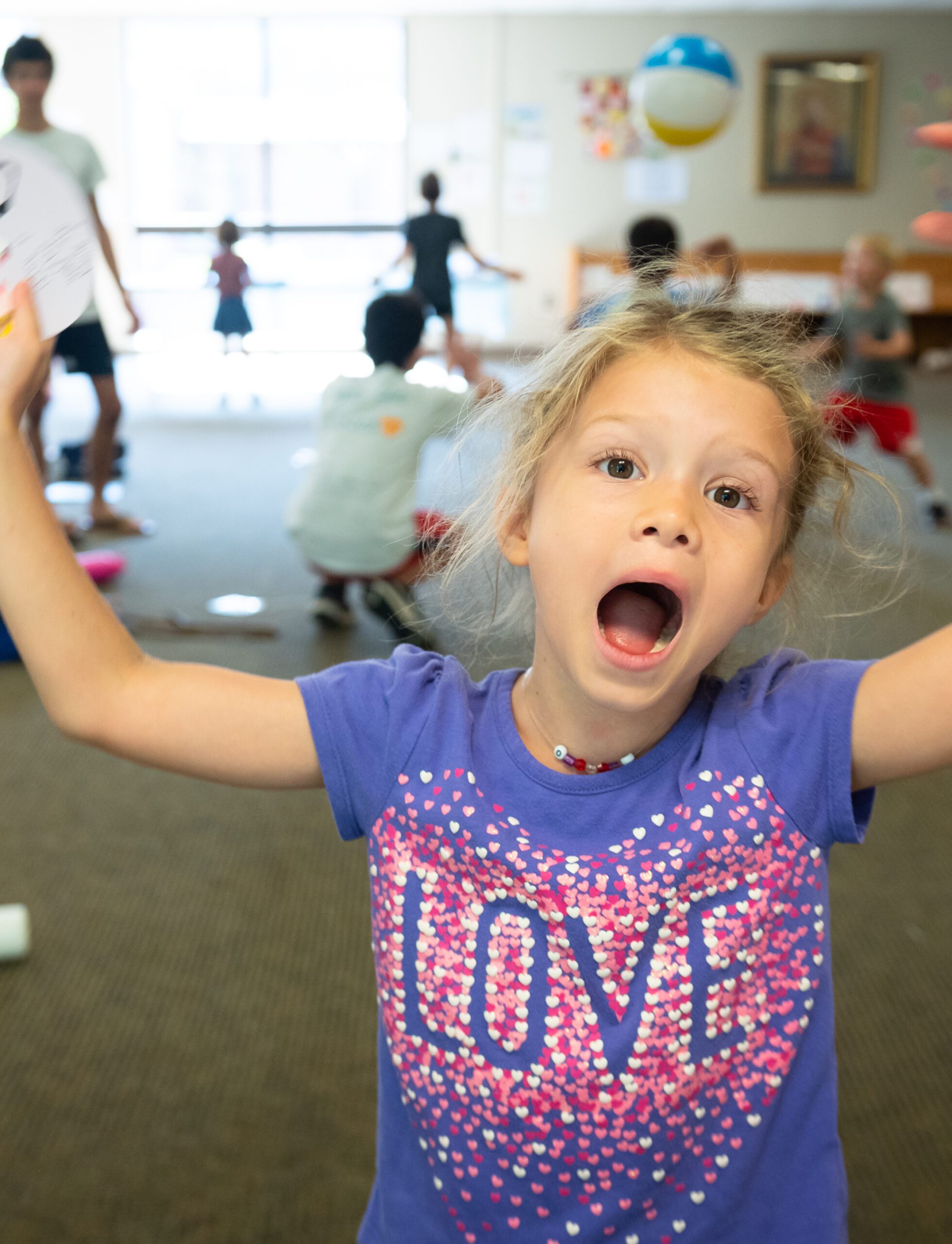
4. I am Resistant.
“We have to stand firm against systems of oppression and against bullies. A bully can be anyone or anything that is going to diminish the image of God in some way.”
5. I am Ready.
“We are the hands and the feet of Jesus in the world. And it’s our job to take action.”
To Ulrey, the curriculum is rooted in joy and celebration and differences. “We are inviting children into the work of redeeming the world to God,” Ulrey said. “They get to be a part of it, not bystanders.”
No Such Thing as Too Young
This training for young children has been overdue, said Catherine Meeks, Executive Director of the Absalom Jones Center for Racial Healing.
“God loves every soul on this planet, and children naturally know that and we teach them not to unknow it,” she said. “This curriculum is inviting us to unteach some of those things that we have taught that need to be undone. Children need to have the truth. That’s the only foundation that’s going to get them through life.
“This indefensible system of white supremacy is never going to be completely dismantled until the children stop seeing it as their legacy,” she added. “So we really we need to start with babies, singing this song to them before they’re born, and telling it until they get to be 40 years old, because the only way the system is going to crumble is when we stop thinking it’s necessary.”
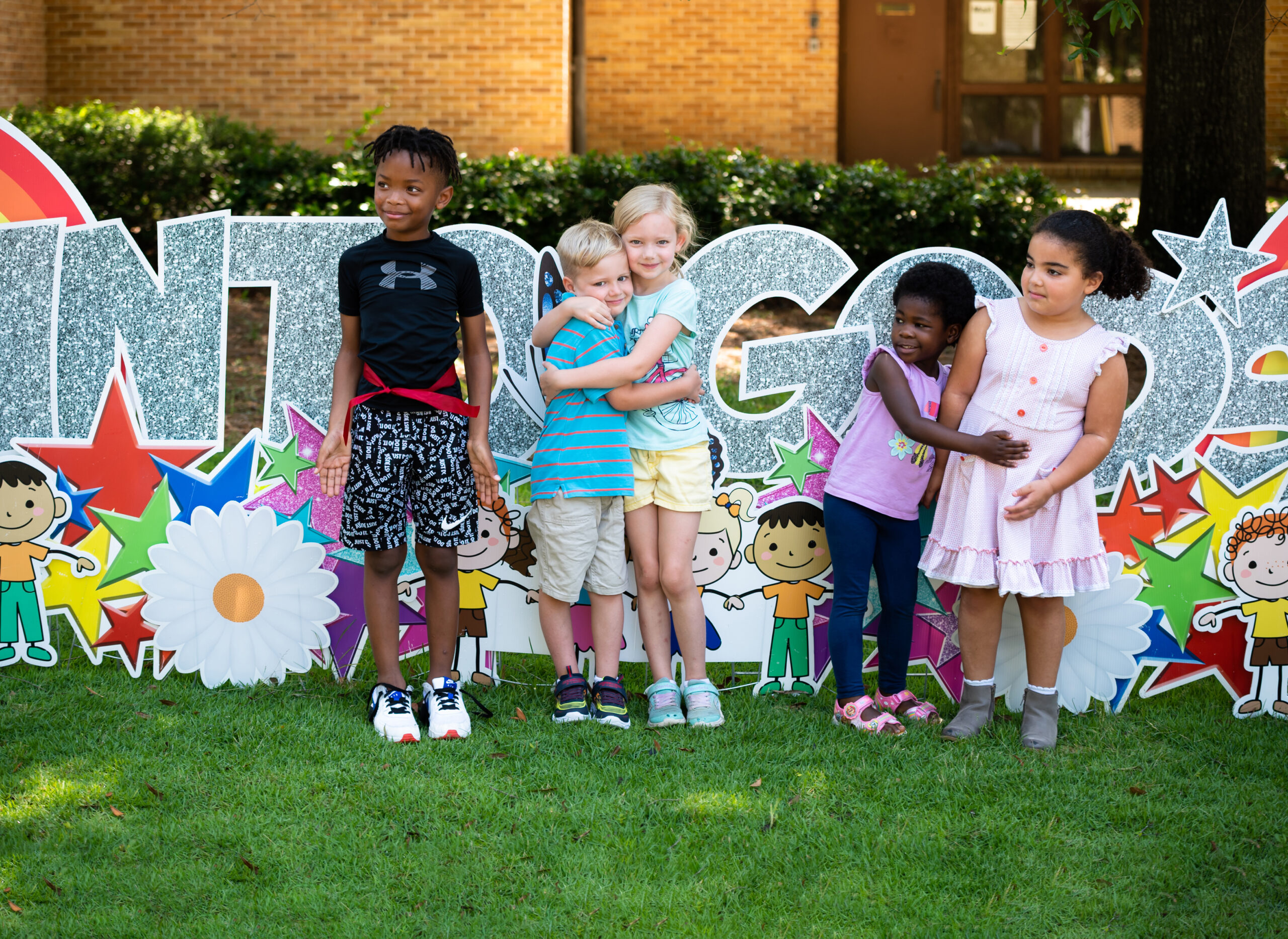
The Dismantling Racism curriculum now speaks to any age, with messages about love and against racism “that are one piece of fabric,” Meeks said. “It’s about all of us, so we stop being able to single out folks and give responsibility to somebody else. You know, we’ve played so many games around race, and one of the biggest things that I’m committed to is that race is not a game. It’s about life and death, and it’s about everybody’s life and death from birth to death, no matter what color you are and where you are on the globe.”
In both parishes, children dove into the activities with great curiosity and empathy, and the teachers and volunteers were also moved by the lessons.
The Old Testament story of Ruth taught the children about discrimination, and the importance of recognizing the face of God in others. Ruth moved to a foreign land and found unexpected kindness from a stranger who protected her. The story prompted a lot of discussion at the St. Martin’s VBS.
“I saw a lot of the kids explaining how they felt about Ruth’s situation and how they thought, ‘Wow, that’s crazy,’ because of the way that someone looked at Ruth, she was treated differently,” said Sawyer Straley, a teen volunteer at St. Martin’s. “The kids were really diving into the stories and their feelings about them.”
“Even the four- to five-year-olds really seemed to engage and kind of understand the idea of refugees fleeing their homes and finding other places to live,” said St. Martin’s VBS volunteer Leslie Uddin.
“They had a much deeper understanding of what the concepts were and what was at stake than I would have anticipated,” said retired schoolteacher Man Martin, a St. Martin’s VBS volunteer. “Having conversations about race is important, I think, for all Americans. And I see the value of having conversations when children are young so they understand concepts, and especially so they can approach them within a Christian framework. You know, we’re commanded to love our neighbors as ourselves. As humans, we’re all too prone to forget that our neighbors are everybody.”
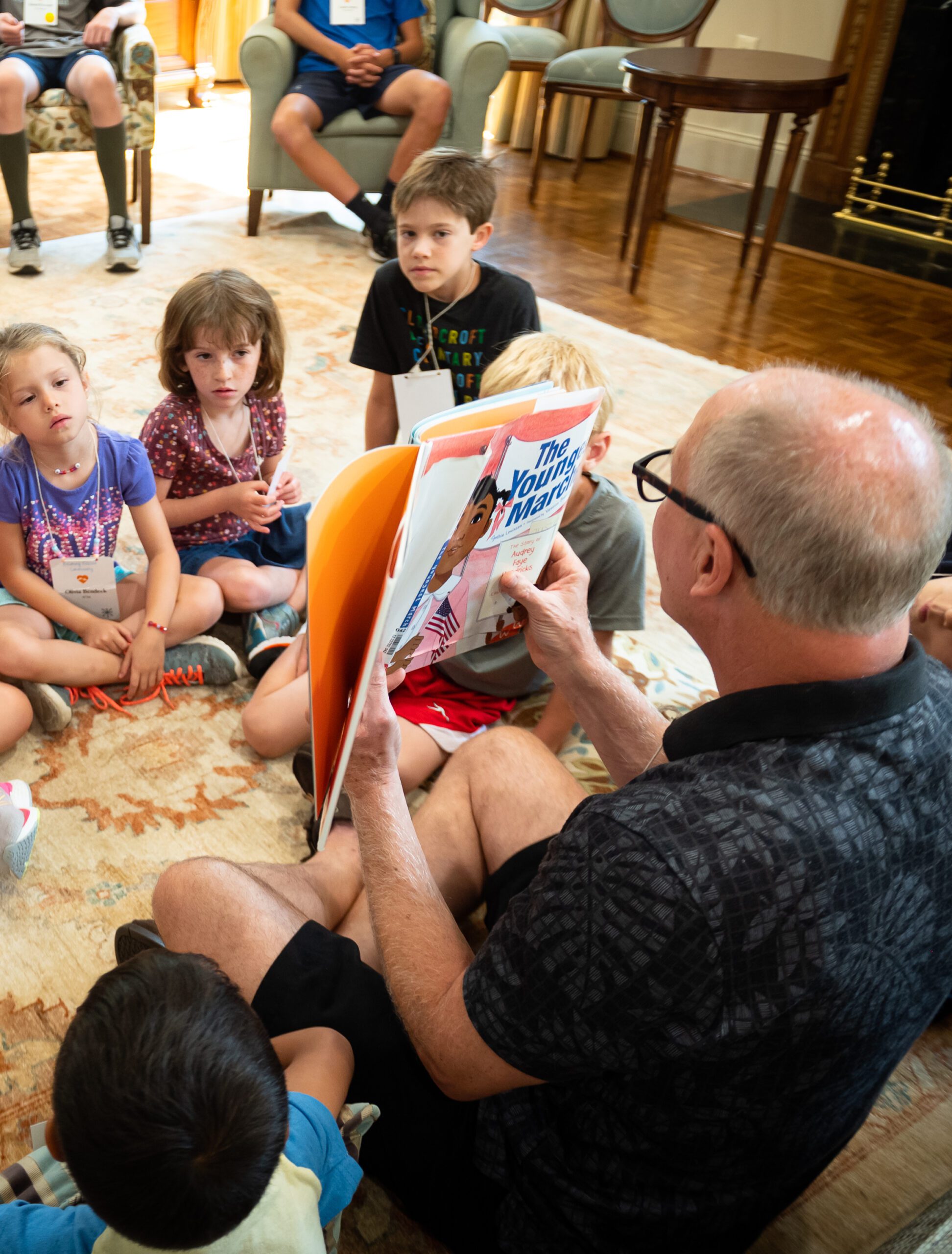
Tackling racism was timely and personally meaningful to Molly Herman-Gallow, St. Martin’s Director of Communications and Director of Children’s Ministries.
“I am adopted from China, and one of the places where I have felt most at home is in the church, especially the Episcopal Church,” she said. “It has really helped me reconcile my own identity as an Asian-American and as an adoptee who once thought her biological parents gave her up for adoption because they didn’t love her. Now I’m reversing that narrative and truly believing and living into the fact that my biological parents did give me up for adoption because they loved me so much. And a lot of that healing and work was really done because of my understanding of how we all are part of God’s family forever and ever, no matter what, and God lets us really embrace who we are in our individuality.”
Seeing kids learn that in VBS touched her. “I felt deep in my heart that there is really no time like this present, when there’s so much occurring in the world that is very kind of racially driven, and that highlights people’s differences more than people’s similarities,” she said.
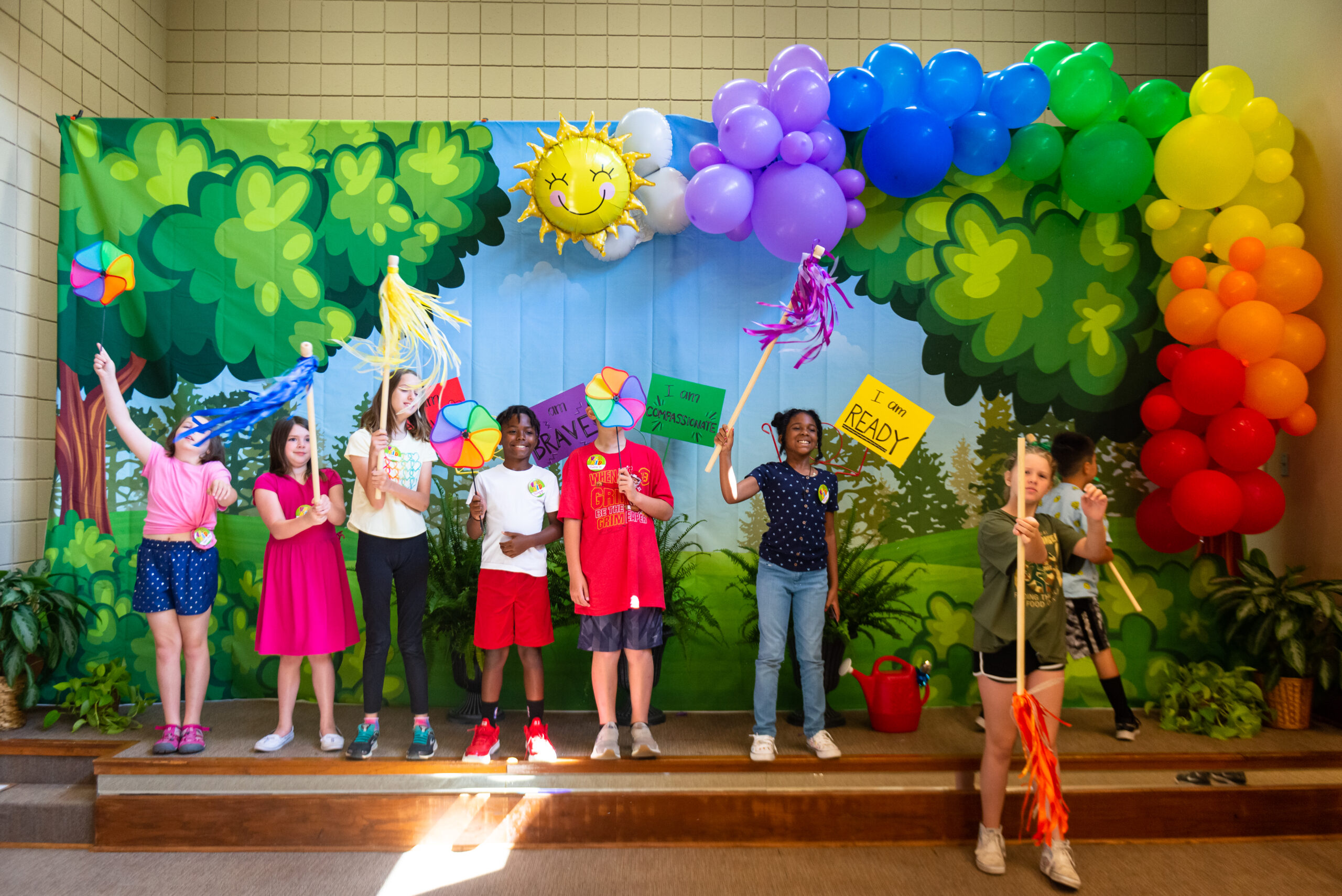
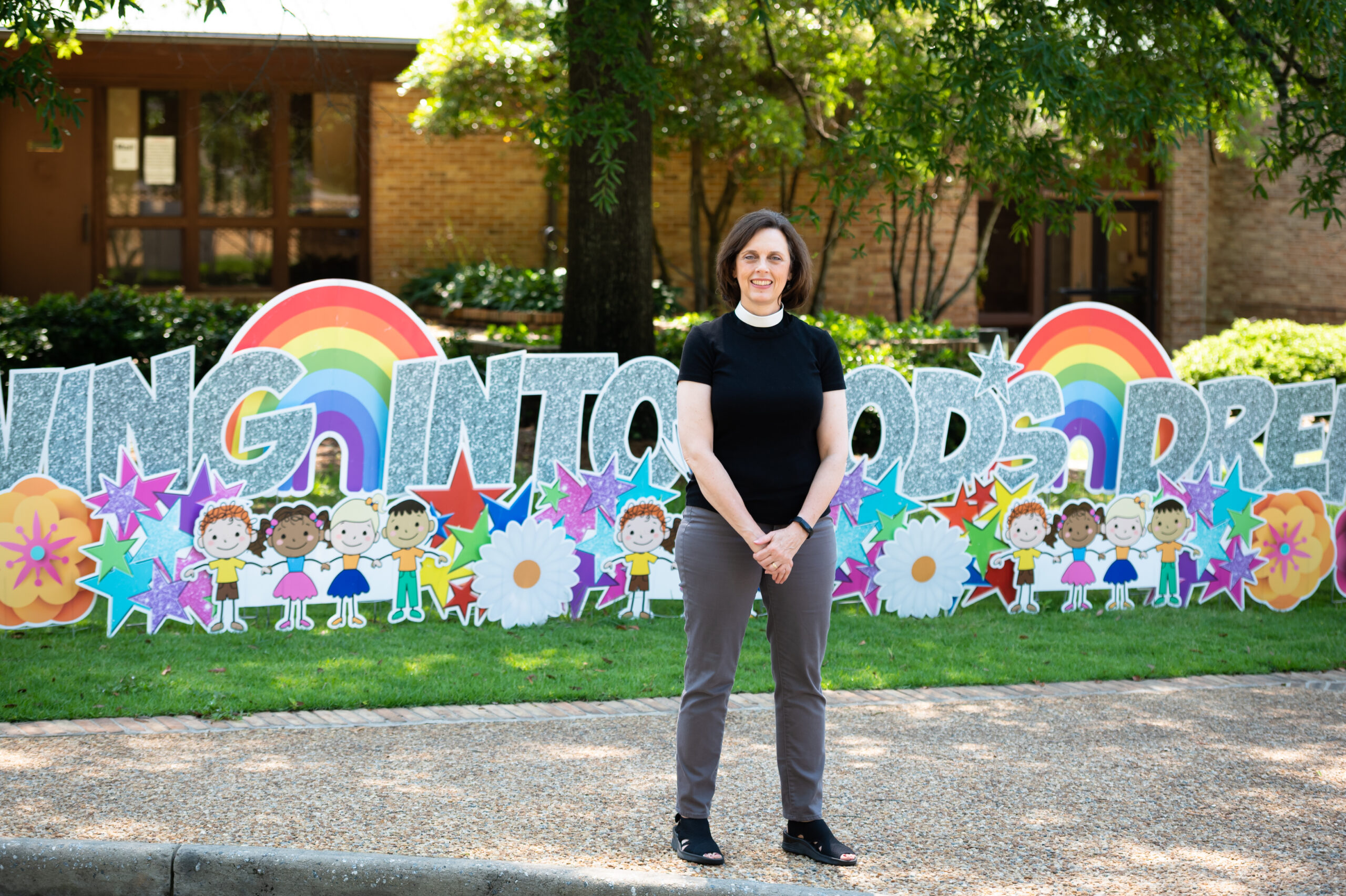
No Longer Cheated
Ulrey and fellow curriculum creators Katie McRee and Malinda Shamburger, who all have children or grandchildren in the VBS age group, felt strongly that a children’s version of the dismantling racism program was long overdue.
They had written or implemented the youth version, “and every single time we ran it, the youth said they felt cheated,” said McRee, former youth minister at St. David’s Episcopal Church. “They felt like, ‘Why didn’t I know this sooner?’ We heard this 100 percent of the time, and I thought, there’s no reason we can’t have these conversations earlier. That will help them make better sense of the world around them, because what we want for them is to be able to look around them and ask, “Where is God in this? How do I as a child of God respond to the world around me?”
As a St. Thomas member, Shamburger welcomed the chance to influence the curriculum. The results remind her of a gospel song that gets louder and higher-pitched with each stanza. “Each part of this curriculum goes deeper and deeper,” she said. “When I think that I can’t learn anything else about this, I learned something else.”
At St. Thomas VBS, several children from one family had such a meaningful experience that the family is now becoming members, Shamburger and Redden said. “They had been going to several different churches and trying to decide what was the best fit and honestly, I just wasn’t sure that we were necessarily the right fit,” Redden said. “Based off of things that were taught and the things that were said during VBS, they definitely wanted to become members, and matter of fact, they’re gonna be baptized on All Saints’ Day.”
While the adults quoted for this article did most of the talking for the children involved, they are also challenged to oppose racism and celebrate differences.
“I’m a Black person, living in a world that’s not built for Black people, and have to learn how to survive in this,” Shamburger said. “I teach kids how to survive in it too, but also how to thrive in it.”
“There’s still a lot of work to do, but there’s an awareness that now I can’t go back,” McRee said. “I have to operate knowing what I know: We owe it to our children to explain what they’re seeing. We can be brave enough to show them and explain to them about race.”
Listen In
In this episode, Bishop Wright has a conversation with Dr. Meeks about her own story of personal memoir, purpose, the work of racial healing, and her recent award.